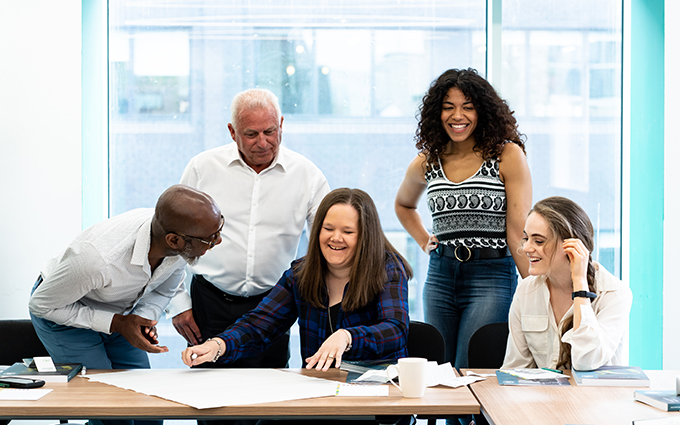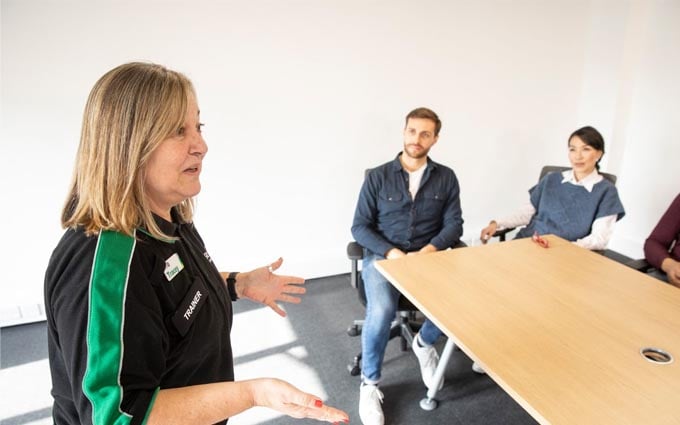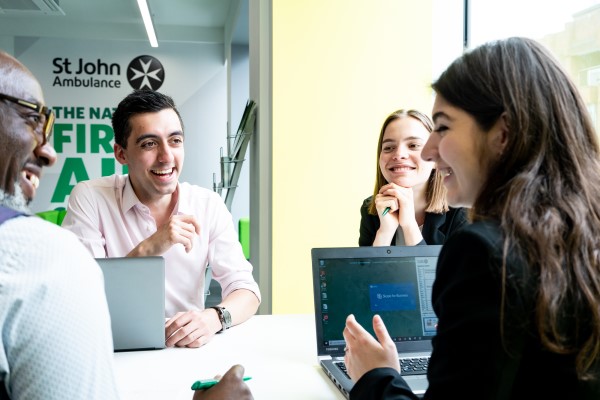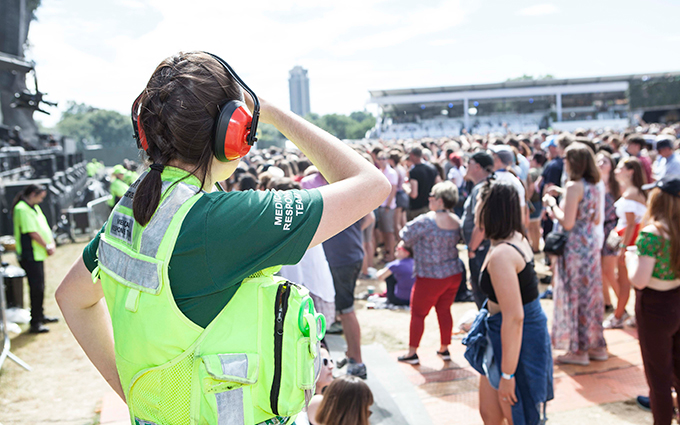Published: 14th March 2025.
Last updated: 14th March 2025.
Author: Cara Sherratt.
“New research suggests that doing DIY helps counter anxiety, stress and improve wellbeing while aiding physical and cognitive abilities. Improving your home and feeling a sense of pride and achievement in your surroundings can also have a massive impact on your mental health.” - Wickes

At Wickes, the positive impact of DIY projects on mental health is more than just a concept. From encouraging customers to engage in hands-on crafting to support their own well-being, to bringing mental health education to their internal structures by introducing mental health first aiders that are equipped with the right knowledge to support others and successfully build a supportive team, we’re showcasing how one of our customers has put their training into practical use.
Mental Health First Aid training has been introduced as part of Wickes’ ongoing commitment to creating a supportive and inclusive work environment. Understanding that mental health is as important as physical health, Wickes takes proactive steps to ensure that its employees are equipped with the knowledge and skills to support one another.
Wickes first trialled St John Ambulance’s mental health training in 2019, seeing great success and ultimately rolling out the initiative across the business. Four years later, Wickes has trained over 1000 employees on our two-day course, with this becoming their preferred training course for their mental health first aiders, as well as refresher training every three years to keep skills sharp.
Mental Health First Aid training enables team members to recognise the signs of mental health issues, provide initial assistance, and connect colleagues with the appropriate resources. By prioritising mental well-being, Wickes is fostering a workplace culture that values empathy, resilience, and the overall health of its employees.
Employees at Wickes shared their experience of championing mental well-being and driving initiatives to ensure people have a safe space to discuss mental health at work.
“I wanted to use my qualification to help as many people as possible. It gave me the confidence to speak openly about mental health”- Sean Mackey - Charity Partnership Manager, Wickes
“I attended the 2-day course back in 2018 and my Mental Health First Aid qualification has followed me and has been a constant in my career ever since. The course is set out to help you help people but what I didn't expect was it was going to help me first. Learning about the signs and symptoms of anxiety during the course made me aware that I suffered from this but didn't have a name for it. I was then able to start my journey by helping me live with anxiety.
From that point, I wanted to use my qualification to help as many people as possible. It gave me the confidence to speak openly about mental health which has led me to being able to help friends and family navigate grief and crisis during difficult times and also help colleagues at work when times get tough. It's an invaluable skill that will live with me for the rest of my life and I hope to continue to help as many people as possible.”
“The training was incredibly insightful, shining a light on areas I hadn’t fully understood before.”- Matt Bond - Continuous Improvement Operations Manager, Wickes
“Having Mental Health First Aiders in the workplace is just as essential as having physical first aiders. If someone broke their arm, they’d receive immediate support—mental health should be no different. Everyone should feel assured that there are trained colleagues ready to step in and help.
Since completing the training, I’ve had the opportunity to use my skills in real situations. It was an amazing feeling to recognise the warning signs in someone’s words and be able to support and signpost them to the right care. I’ve also seen a real shift in our workplace culture—there’s now a stronger sense of understanding, tolerance, and care, with mental health not just acknowledged but prioritised.”
Wickes top tips on implementing and future-proofing mental health initiatives
From Co-chair of the Wellbeing Network at Wickes, Sarah Steers
“We run a programme of events throughout the year and in the past two years we have marked time to talk day and Brew Monday, encouraging colleagues to start a conversation around mental health.
We delivered wellbeing fairs at our Support Centre Head Office and at the Stores Delivery Centre distribution centre.
We continue to mark world suicide prevention day, ‘Know your Numbers Week’ and delivered a ‘12 days of Wickesmas’ initiative, including competitions linked to raising awareness of our support partners through our Rewards platform, hints and tips to improve your own wellbeing and through posts on our online community.
We ensure that everyone has access to Mental Health First Aiders and understand that people might not want to speak to their line manager about issues, so make it possible to speak to representatives in other departments/roles. We have a directory hosted on the website for colleagues to access and encourage a culture of virtual and face to face wellbeing check-ins within teams.
What three things would you suggest other businesses focus on with regards to wellbeing for their staff?
- Ensuring you have senior leaders buy in and support for what you are trying to achieve. At Wickes we have the HR Director as the Sponsor of our wellbeing committee.
- Avoiding gimmicks or one-off gestures. You are trying to create lasting change and improve the culture of the organisation. Colleagues will really appreciate you being a voice for them to make the working day/life better. Introduce wellbeing-based employee benefits such as an Employee Assistance Programme (EAP) and other support apps and tools that will really make a difference to colleagues.
- Always ask for feedback from colleagues around events, to ensure events and activities are worthwhile and useful and worth continuing with. This means we can make data led decisions on focusing on topics that colleagues want and need.
- Finally, set boundaries for Mental Health First Aiders and ensure that they and all colleagues understand their role and how they can support others. But also be clear on what they won’t do (for example, diagnose a mental health condition or tell someone what to do in a situation. They are very much there to listen non judgmentally and help them to help themself.
Recognising the growing importance of mental health, Wickes employees have been given the opportunity to become certified Mental Health First Aiders. These trained individuals act as the first point of contact for colleagues experiencing mental health challenges, equipped with the right tools to provide initial support and guidance. By fostering an open dialogue around mental health and offering immediate assistance, employees have discussed an increase focus on well-being as well as reducing stigma and creating a more empathetic and connected workplace.
Find out more about how our training can support your organisation and why encouraging open and meaningful conversation about mental health is so important in the workplace by visiting our website.










